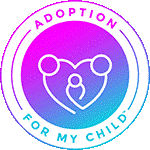The Food and Nutrition Service (FNS) website, a Federal agency of the U.S. Department of Agriculture, responsible for administering the WIC Program at the national and regional levels. The following information can be found on their website. The Special Supplemental Nutrition Program for Women, Infants, and Children – better known as the WIC Program – serves to safeguard the health of low-income pregnant, postpartum, and breastfeeding women, infants, and children up to age 5 who are at nutritional risk by providing nutritious foods to supplement diets, information on healthy eating including breastfeeding promotion and support, and referrals to health care.
WIC provides federal grants to states for supplemental foods, health care referrals, and nutrition education for low-income pregnant, breastfeeding, and non-breastfeeding postpartum women, and to infants and children who are found to be at nutritional risk.
Established as a pilot program in 1972 and made permanent in 1974, WIC is administered at the Federal level by the Food and Nutrition Service of the U.S. Department of Agriculture. Formerly known as the Special Supplemental Food Program for Women, Infants, and Children, WIC’s name was changed under the Healthy Meals for Healthy Americans Act of 1994, in order to emphasize its role as a nutrition program.

Most state WIC programs provide vouchers that participants use at authorized food stores. A wide variety of state and local organizations cooperate in providing the food and health care benefits, and 46,000 merchants nationwide accept WIC vouchers.
WIC is effective in improving the health of pregnant women, new mothers, and their infants. A 1990 study showed that women who participated in the program during their pregnancies had lower Medicaid costs for themselves and their babies than did women who did not participate. WIC participation was also linked with longer gestation periods, higher birthweights and lower infant mortality.
The WIC program targets to serve populations who are low-income and nutritionally at risk including pregnant women (through pregnancy and up to 6 weeks after birth or after pregnancy ends), breastfeeding women (up to infant’s 1st birthday), Non-breastfeeding postpartum women (up to 6 months after the birth of an infant or after pregnancy ends), infants (up to 1st birthday), and children up to their 5th birthday. WIC serves 53 percent of all infants born in the United States.

WIC not only provides supplemental nutritious foods to participants but also provides nutrition education and counseling at WIC clinics as along with screening and referrals to other health, welfare and social services.
WIC is not an entitlement program as Congress does not set aside funds to allow every eligible individual to participate in the program. WIC is a federal grant program for which Congress authorizes a specific amount of funds each year for the program. WIC is administered at the federal level by FNS, administered by 90 WIC state agencies, through approximately 47,000 authorized retailers. WIC operates through 1,900 local agencies in 10,000 clinic sites, in 50 state health departments, 34 Indian Tribal Organizations, the District of Columbia, and five territories (Northern Mariana, American Samoa, Guam, Puerto Rico, and the Virgin Islands). Services are provided through county health departments, hospitals, mobile clinics (vans), community centers, schools, public housing sites, migrant health centers and camps, and Indian Health Service facilities.
For more information or to find a WIC office near you please visit https://www.fns.usda.gov/wic/wic-how-apply






